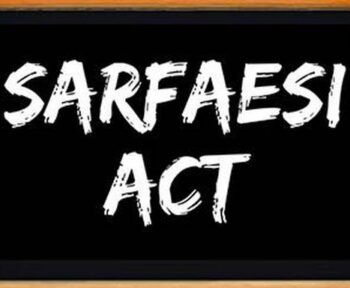The vast business landscape in India comprising diverse industries of different sizes and varying consumer segments, often witnesses situations where debtors are unable to meet their financial obligations. In such cases, debt arbitration provides a structured framework to navigate through the complexities of debt resolution, ensuring that the interests of both creditors and debtors are duly considered. By opting for arbitration, debtors and creditors can bypass the traditional court case approach and instead engage in a more streamlined and efficient resolution process. This not only saves valuable time and resources but also helps alleviate the burden on the courts. It brings forth a pragmatic approach that allows both creditors and debtors to find equitable solutions.
What is debt arbitration?
Debt arbitration, also referred to as debt settlement, debt resolution, or debt negotiation, is a procedure in which two parties concur that an arbitrator, as opposed to a judge or jury, will settle their dispute. Depending on the terms of the agreement, the creditors give up a significant portion of the debt. In exchange for the creditor’s agreement that the debt is closed and the matter is resolved, the debtor makes a single lump sum payment. Arbitration is a private and confidential process, and the parties have more control over the process than they would in a court case. Both parties must agree on the arbitrator’s selection before it can proceed. Typically, this process is only used to settle unsecured loans, like credit card and medical bills.
The reason why creditors choose to settle
Financial institutions in India frequently resort to litigation to settle disagreements with borrowers. Therefore, if a borrower is unable to pay their debt, the creditor may file a lawsuit to collect the debt. This may entail sending collection letters to borrowers, making follow-up calls, and ultimately filing a lawsuit against them in court.
Litigation can be a lengthy and expensive process. A court case may take months or even years to resolve, and both the borrower and the creditor will probably pay hefty legal costs. Debt arbitration is a more efficient and cost-effective alternative to litigation. In arbitration, a neutral third party, known as an arbitrator, hears the arguments of both sides and decides how to resolve the dispute. Arbitration is typically much faster and less expensive than litigation, and it can be a more comfortable and flexible process for both parties.
The question is, why would a creditor settle for a lower amount than they are owed? This is due to a few factors.
- To avoid bankruptcy: If a debtor declares bankruptcy, the creditor might not get paid what they are owed. The creditor can at least recover a portion of the debt by agreeing to a lower amount.
- To avoid legal fees: If a creditor takes a debtor to court, they will likely have to pay legal fees. These fees can be expensive and may not be worth it if the creditor is only owed a small amount of money.
- To keep the debtor as a customer: If a creditor settles for a lower amount, they may be more likely to do business with the debtor in the future. This is especially important for businesses that rely on repeat customers.
In some cases, a creditor may be willing to settle for a lower amount even if they are not facing any of these problems. This is due to the possibility that they merely want the debt cleared off their books. Having a large debt can be a burden for a creditor, and they may be willing to take a loss to write it off.
Benefits of arbitration
Arbitration offers a number of benefits to all the stakeholders involved in the process of debt resolution. Some of them are:
- Speed: Arbitration is generally a much faster process than court litigation. This is due to the fact that arbitrators frequently have more experience in commercial disputes and are not constrained by the same legal procedures as courts.
- Cost: Compared to litigation, arbitration and conciliation may be less expensive. This is due to the fact that the parties can frequently agree on the fees to be paid to the arbitrator and do not have to pay court costs.
- Flexibility: The parties to an arbitration agreement have a lot of flexibility in terms of how the arbitration is conducted. This includes the choice of the arbitrators, the place of the arbitration, and the rules that will govern the arbitration.
- Expertise: Arbitrators and conciliators are often experts in the field of law or business that is relevant to the dispute. This means they can provide the parties with valuable insights and help them reach a fair and equitable resolution.
- Confidentiality: Arbitration is a confidential process. This means that the parties to the arbitration and the arbitrators are prohibited from disclosing any information about the case to anyone else.
- Enforceability: Arbitral awards and conciliated settlements are enforceable in India and in most other countries. This means that the parties can be confident that they will be able to obtain a remedy if the other party does not comply with the award or settlement.
- Finality: Arbitral awards are final and binding on the parties. This means that the parties cannot challenge an arbitral award in court unless there are very limited grounds for doing so.
Impact of debt arbitration on borrowers
Debt arbitration can have various impacts on individuals who choose to settle debt. Here are some key impacts to consider:
- Credit score implications: It is important to be aware that debt arbitration can have a negative impact on credit scores. When a settlement is reached, it implies that the borrower was unable to fulfil the initial loan terms. As a result, the credit score may be negatively affected. Additionally, settled accounts may be reported on credit reports, indicating that the debt was not fully repaid as originally agreed. These negative notations can remain on credit reports for up to seven years, potentially affecting creditworthiness during that time.
- Potential tax liability: Debt settlement through debt arbitration may have tax consequences. In certain situations, the settled debt amount may be considered taxable income. It is crucial for individuals to consult with a tax professional to understand the potential tax implications of debt arbitration in their specific case.
- Credit rebuilding: After completing debt arbitration, individuals may need to focus on rebuilding their credit. This involves adopting responsible financial habits, such as making timely payments on remaining debts, maintaining low credit utilization, and effectively managing their finances. Over time, demonstrating positive credit behavior can help improve credit scores and showcase creditworthiness to potential lenders.
Approaching debt arbitration with careful consideration and seeking guidance from reputable debt arbitration agencies or financial advisors is essential. Understanding and evaluating the potential impacts in the context of individual financial circumstances can empower individuals to make informed decisions about pursuing debt arbitration as a viable debt resolution option.
The legal framework for arbitration in India
In India, there are two main debt arbitration laws: the Arbitration and Conciliation Act, 1996 (the “Arbitration Act”) and the Recovery of Debts Due to Banks and Financial Institutions Act, 1993 (the “RDDBFI Act”). The Arbitration Act sets out the general framework for arbitration in India, while the RDDBFI Act specifically deals with the arbitration of debt disputes between banks and financial institutions and their borrowers.
The Arbitration Act and Conciliation Act, 1996
The Arbitration and Conciliation Act, 1996 is an Act of the Parliament of India that governs debt arbitration in India. The Act provides a comprehensive framework for resolving disputes through arbitration and conciliation.
The Act has the following key features:
- It provides a fast and efficient way to resolve disputes.
- It is flexible and allows the parties to choose the rules that will govern their arbitration or conciliation.
- It is confidential and protects the privacy of the parties.
- It is enforceable in India and in most other countries.
The Arbitration and Conciliation Act, 1996 has successfully promoted the use of arbitration and conciliation in India, and helped to reduce the number of cases pending in the courts. It has also provided businesses with a faster and more efficient way to resolve their disputes.
Recovery of Debts Due to Banks and Financial Institutions Act (RDDBFI), 1993
The RDDBFI Act provides a special procedure for recovering debts that are due to banks and other financial institutions. This procedure is designed to be quick and efficient, and it is intended to provide banks and other financial institutions with a more effective means of recovering debts than they would have through court litigation.
The RDDBFI Act sets up a special debt recovery tribunals (DRTs) system to hear disputes between banks, financial institutions, and their borrowers. The DRTs have the power to order the sale of assets, the attachment of property, and the garnishment of wages to recover debts. The judges who work in the DRTs have received specialized training in commercial law, and they have the authority to make decisions that are legally binding on all parties.
The RDDBFI Act provides for accelerated proceedings in DRT cases. The DRTs are required to issue orders within 60 days of the filing of a case, and they are also authorized to take a number of steps to expedite the recovery process, such as issuing warrants of attachment and sale of property. It also provides for strict enforcement of its orders. If a debtor fails to comply with an order of the DRT, the debtor may be imprisoned for up to one year, or the debtor’s property may be seized and sold.
Conclusion
While several banks have extended the debt collection period and halted bankruptcy proceedings, it is crucial to recognize that these measures alone cannot ensure complete business recovery. Given the unprecedented circumstances, delays are anticipated in court and arbitration proceedings. Combining these measures with arbitration can offer the most effective solution to address the challenges currently faced by businesses. For the successful implementation of arbitration, it is essential to have equal support and cooperation from both the lender and the debtor.
FAQs:
- What are the laws applicable on arbitration in India?
Indian arbitration is regulated by the Arbitration and Conciliation Act, 1996, which is based on the 1985 UNCITRAL model on International Commercial Arbitration and the UNCITRAL Arbitration Rules of 1976. Further, the RDDBFI Act, 1993, provides a procedural framework for debt recovery by banks and financial institutions.
- What does the term “debt arbitration” mean?
Debt arbitration is a process in which a neutral third party, called an arbitrator, helps two parties reach an agreement on how to settle a debt dispute. Typically, the arbitrator is a qualified professional with experience in debt law, such as a lawyer.
Debt arbitration can be a good option for both creditors and debtors. For creditors, it can be a way to collect a debt that they might not be able to collect through other means, such as lawsuits. For debtors, it can be a way to settle a debt for less than the full amount owed, which can help them improve their credit score and get back on their feet financially.
- What is the process of debt arbitration?
The process of debt arbitration typically begins when the debtor contacts a debt settlement company. The company will then contact the creditor on the debtor’s behalf and try to negotiate a settlement. If the creditor agrees to a settlement, the debt settlement company will then collect the settlement amount from the debtor and pay it to the creditor.





